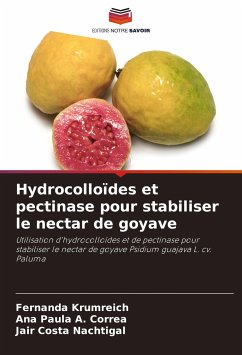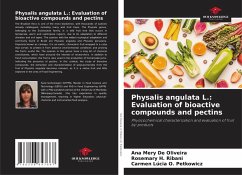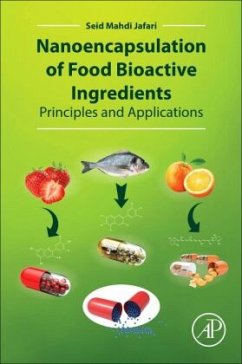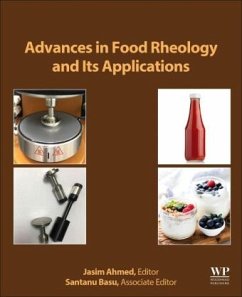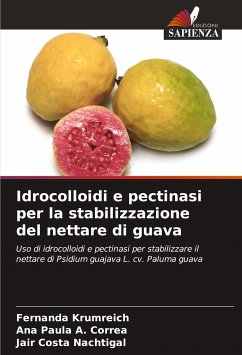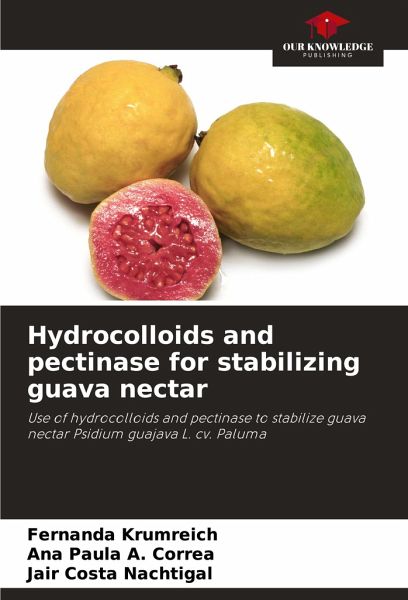
Hydrocolloids and pectinase for stabilizing guava nectar
Use of hydrocolloids and pectinase to stabilize guava nectar Psidium guajava L. cv. Paluma
Versandkostenfrei!
Versandfertig in 6-10 Tagen
36,99 €
inkl. MwSt.

PAYBACK Punkte
18 °P sammeln!
The market for fruit juices and nectars has been growing in recent years, which is attributed to the concern about acquiring healthier and more beneficial foods. Guava (Psidium guajava L.), which belongs to the Myrtaceae family, is considered to be rich in bioactive compounds such as carotenoids, phenolic compounds and L-ascorbic acid. Its fruits are mainly consumed fresh or in the form of juices, nectars, jams and jellies. Nectar is one of the forms of consumption that has seen a significant increase, but it shows phase separation during storage, which can be solved with the addition of hydro...
The market for fruit juices and nectars has been growing in recent years, which is attributed to the concern about acquiring healthier and more beneficial foods. Guava (Psidium guajava L.), which belongs to the Myrtaceae family, is considered to be rich in bioactive compounds such as carotenoids, phenolic compounds and L-ascorbic acid. Its fruits are mainly consumed fresh or in the form of juices, nectars, jams and jellies. Nectar is one of the forms of consumption that has seen a significant increase, but it shows phase separation during storage, which can be solved with the addition of hydrocolloids and enzymes, which not only stabilize the nectar but also preserve its bioactive compounds.





